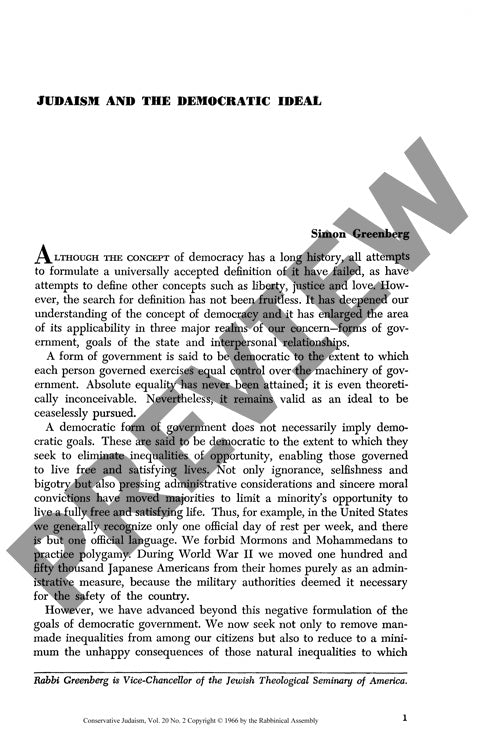Judaism and the Democratic Ideal
Couldn't load pickup availability
The Biblical-Rabbinic tradition offers profound yet underexplored foundations for modern democratic principles, particularly through its radical concept of human indivisibility derived from humanity's common descent from Adam. Through theological and philosophical analysis of Jewish textual sources, three fundamental democratic realms emerge: governmental forms, state goals, and interpersonal relationships. While democracy provides essential political frameworks, it requires deeper moral underpinnings for its complete realization. The Rabbinic teaching that destroying one person equals destroying the entire world exemplifies how Jewish thought upholds individual sanctity against majority tyranny. Similarly, Jewish concepts of personal responsibility—where each person's actions shape universal destiny—address democracy's critical need for accountable citizenship. Analysis of Biblical-Rabbinic texts reveals a value system that measures human achievement through loving kindness, justice, and righteousness rather than wealth, power, or wisdom. This theological framework simultaneously restrains democratic injustice and motivates civic participation, suggesting that successful democratic societies require religious and moral foundations beyond secular political structures. The research demonstrates that Jewish tradition, through its emphasis on human equality, individual dignity, and social responsibility, provides crucial supplementary values for democratic fulfillment.

More Information
-
Physical Description
-
Publication Information
Published 1966
ISBN
-
Publication Credits
Simon Greenberg

